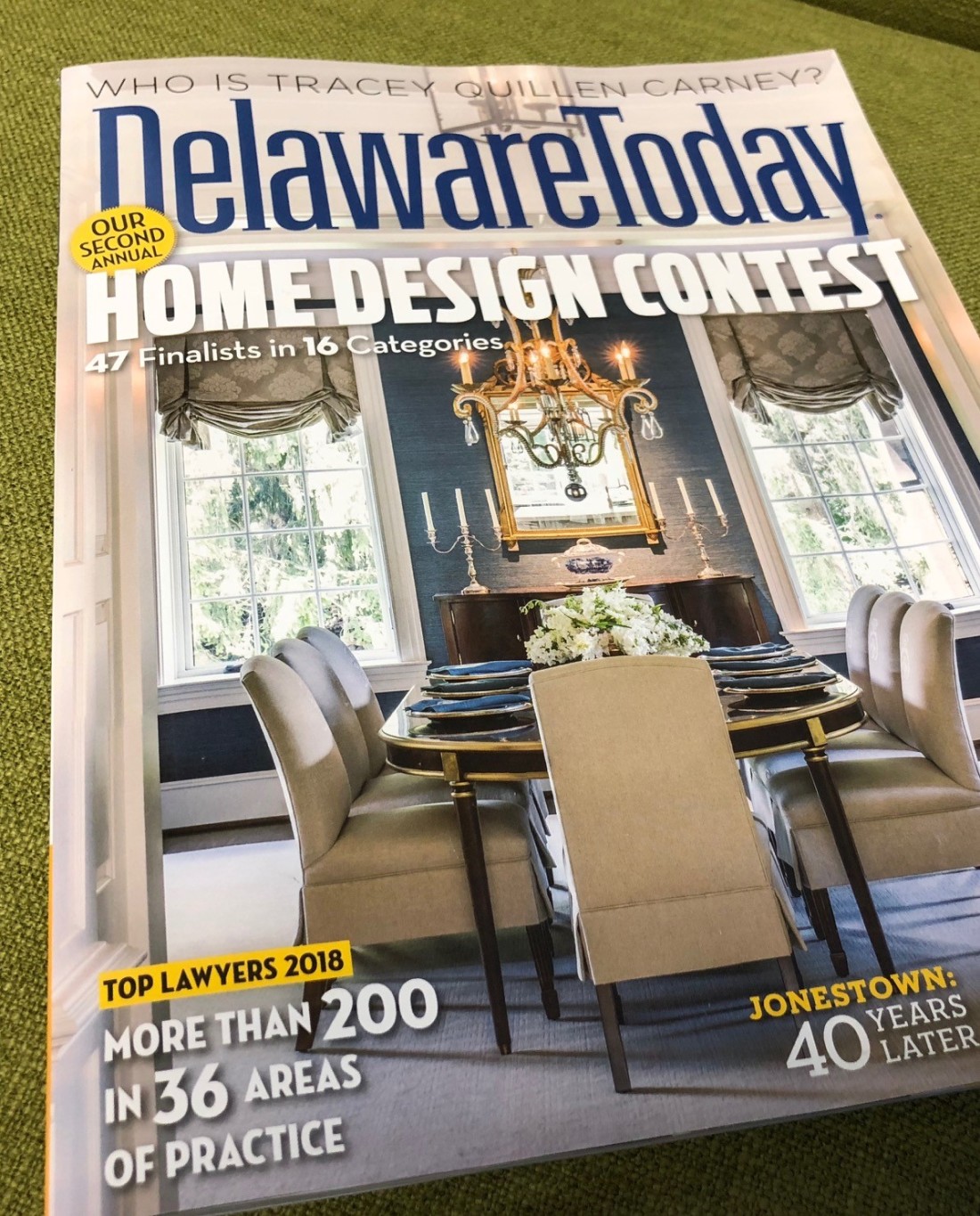Showing 180 posts from 2018.
Delaware Supreme Court Reverses Superior Court in Holding that Insured’s Claim Barred by the Statute of Limitations
Homeland Ins. Co. of New York v. CorVel Corp., No. 60, 2018 (Del. Nov. 20, 2018)
CorVel filed a complaint in the Delaware Superior Court in May 2015 arising out of a settlement of the underlying actions in January 2011. The Supreme Court held that CorVel’s bad faith claim began to run in 2011, when CorVel settled an underlying arbitration and related class action. Because CorVel did not file suit until January 2011, the applicable three-year statute of limitations barred CorVel’s claim. The Supreme Court held that once CorVel could plead the necessary elements of a prima facia claim under Lousiana’s Bad Faith Statue, the cause of action accrued for purposes of Delaware’s statute of limitations. In doing so, the Supreme Court held that it was not necessary for CorVel to actually obtain a ruling that the Homeland policy covered the claims before it could proceed with its bad faith action.
ShareExtraordinary Circumstances MAE Allow a Buyer to Break a Bad Deal
 The State of Delaware’s policy is to give maximum effect to the principle of freedom of contract. Delaware courts seek to enforce the language in an agreement negotiated by the parties and will not rewrite the agreement after the fact to reallocate risks, especially in an agreement between sophisticated parties that was bargained for at arm’s length. This includes risks allocated through “material adverse effect” (MAE) provisions in a merger or acquisition agreement. The Delaware Court of Chancery’s recent decision in Akorn, Inc. v. Fresenius Kabi AG, No. 2018-0300-JTL, 2018 WL 4719347 (Del. Ch. Oct. 1, 2018) (Laster, V.C.), illustrates how the court applies Delaware’s policy of freedom of contract. While this is the first time that the court has found that an MAE on the seller’s business justified a buyer’s termination of a merger agreement, this decision presented an exceptional set of facts regarding the utter deterioration of Akorn’s business and widespread company regulatory compliance issues affecting its pipeline of new generic drugs. Accordingly, the court’s ruling merely represents the application of a well-known principle to enforce the language of a merger agreement, allocating the risks bargained for by sophisticated parties, to an egregious set of facts. More ›
The State of Delaware’s policy is to give maximum effect to the principle of freedom of contract. Delaware courts seek to enforce the language in an agreement negotiated by the parties and will not rewrite the agreement after the fact to reallocate risks, especially in an agreement between sophisticated parties that was bargained for at arm’s length. This includes risks allocated through “material adverse effect” (MAE) provisions in a merger or acquisition agreement. The Delaware Court of Chancery’s recent decision in Akorn, Inc. v. Fresenius Kabi AG, No. 2018-0300-JTL, 2018 WL 4719347 (Del. Ch. Oct. 1, 2018) (Laster, V.C.), illustrates how the court applies Delaware’s policy of freedom of contract. While this is the first time that the court has found that an MAE on the seller’s business justified a buyer’s termination of a merger agreement, this decision presented an exceptional set of facts regarding the utter deterioration of Akorn’s business and widespread company regulatory compliance issues affecting its pipeline of new generic drugs. Accordingly, the court’s ruling merely represents the application of a well-known principle to enforce the language of a merger agreement, allocating the risks bargained for by sophisticated parties, to an egregious set of facts. More ›
Delaware Supreme Court Clarifies When LLC Agreement Makes A Contract Void
CompoSecure LLC v. Cardux LLC, C.A. No. 177,2018 (Del. November 7, 2018)
This is an important decision because it holds that an LLC agreement may make a contract void for failure to comply with the required provisions in the LLC agreement to enter into such a contract. If the contract is “void” it cannot be later ratified by implication when the parties follow the terms of the contract. Thus, when contracting with an LLC, it is necessary to read the actual LLC agreement to see if it requires any conditions to entering into a contract.
ShareCourt Of Chancery Explains Limits Of Incorporation By Reference In Disclosure Law
Zalmanoff v. Hardy, C.A. 12912-VCS (November 13, 2018)
This decision holds that it is acceptable to make the needed disclosures to stockholders by sending them both a Form 10-K and proxy statement at the same time. However, this does not mean that it is possible to rely on past SEC filings when a proxy statement omits material information that was disclosed previously. The key is that the various documents need to be disclosed together.
ShareCourt Of Chancery Limits Zapata Test To Properly Filed Complaint
Busch v. Richardson, C.A. 2017-0868-AGB (November 14, 2018)
A derivative complaint that meets the demand requirements of Rule 23.1 may be subject to later dismissal at the request of a properly formed and functioning special committee under the Zapata decision. Of course, such a request is subject to special scrutiny by the Court. This decision holds that Zapata does not apply in other contexts, such as when a plaintiff has been misled into making a pre-suit demand under the mistaken belief the Board was capable of making a Zapata-like decision.
ShareCourt Of Chancery Clarifies Scope Of Adequate Disclosure To Invoke Corwin
In Re Tangoe Inc. Stockholder Litigation, C.A. 2017-0650-JRS (November 20, 2018)
To obtain business judgment rule protection, directors need to make adequate disclosures to the stockholders whose votes directors contend were adequate to invoke the Corwin decision. But exactly what sort of financial disclosures are needed, particularly where there are no audited financial statements available? This decision helps answer that question. At least when the lack of audited statements is due to a failure to restate those statements after the discovery of past errors, the lack of such statements may be enough to show the disclosures were not adequate to fairly inform the stockholders before their vote. This is particularly so when there have not been quarterly reports, an annual meeting or any explanation why the past financial statements have not yet been corrected. This decision is also helpful in pointing out that when directors’ votes are influenced by their receiving extra compensation as a result, there is enough to support a claim of disloyalty to defeat a motion to dismiss.
ShareFederal District Court Explains PSLRA Requirements For Lead Plaintiff and Counsel
Wigginton v. Advance Auto Parts Inc., CA 18-212 MN (D. Del. November 2, 2018)
This is an excellent review of how the District Court will analyze the requirements of the PSLRA in selecting the lead plaintiff and lead counsel in a securities litigation. Briefly, the plaintiff with the most at stake should take the lead with its chosen counsel so long as it is qualified by past experience to do so. That such a plaintiff may have acted in 5 or more other securities cases is not disqualifying.
ShareCourt Of Chancery Resolves 2 Significant Indemnification Issues
Creel v. Ecolab Inc., C.A. 12917-VCMR (October 31, 2018)
This decision resolves indemnification issues that regularly arise. First, when there are two possible indemnitors and one pays up, may the indemnitee still seek indemnification from the second indemnitor? It depends on when the obligation to indemnify arose. If the indemnitor who actually paid up only assumed that duty after the underlying claim arose that led to the expense to be paid, then that indemnitor is a volunteer and its indemnitee may seek payment from the other indemnitor. Note that this decision does not foreclose suit by the actual indemnitor for equitable contribution. More ›
ShareU.S.News - Best Lawyers® Recognizes Morris James LLP Among Best Law Firms
 The 2019 U.S. News – Best Lawyers® annual guide of the “Best Law Firms" recognizes Morris James as a "Best Law Firm" in the national category of Litigation-Mergers & Acquisitions as well as 25 additional categories for their Delaware practices. More ›
The 2019 U.S. News – Best Lawyers® annual guide of the “Best Law Firms" recognizes Morris James as a "Best Law Firm" in the national category of Litigation-Mergers & Acquisitions as well as 25 additional categories for their Delaware practices. More ›
Court Of Chancery Provides Guidance On Reconciling Public Policy Exception To Noncompete Agreements
Cabela’s LLC v. Wellman, C.A. 2018-0607-TMR (October 26, 2018)
Delaware law broadly enforces noncompete agreements. However, it will not do so when the public policy of a state with greater contacts to the parties prohibits that enforcement. As this decision explains, how to decide what exactly that competing public policy is may not be easy to do given the exceptions to that policy that frequently exist. Here the Court carefully examines the public policy of Nebraska and finds it permits enforcement of noncompete agreements when to do so will prevent unfair competition. More ›
ShareCourt Of Chancery Dismisses Complaint Alleging Aiding and Abetting Claim
Tilden v. Cunningham, C.A. 2017-0837-JRS (October 26, 2018)
This is an interesting decision for many reasons. It includes a comprehensive analysis of when demand on a board is not excused, when ignoring a forum selection clause constitutes prejudice sufficient to invoke a laches defense and why a named plaintiff cannot also be the attorney on the complaint. Perhaps its more lasting impact will be its holding that when directors are exculpated by a 102(b)(7) defense there cannot be an aiding and abetting claim against a third party who facilitated the actions alleged to be a breach of fiduciary duty.
ShareCourt Of Chancery Explains When To Stay A Case In Favor Of Foreign Litigation
Lexington Services Ltd. v. US Patent No. 8019807 Delegate LLC, C.A. 2018-0157-TMR (October 26, 2018)
This decision explains when to stay a Delaware litigation in favor of litigation in a foreign country. As it notes, when the law of that other country is not well explained to the Court with respect to the enforcement of a forum selection clause, it will apply Delaware law to decide that issue.
ShareDelaware Superior Court Explains When Implied Covenants Triggered
The GWO Litigation Trust v. Sprint Solutions Inc., C.A. N17C-06-356 PRW CCLD (October 25, 2018)
While every contract has an implied covenant requiring the parties to act fairly and in good faith, it is not always easy to know how that applies in a given case. This decision is a good example of how the court will approach that issue. It finds that the contract impliedly limited the right of a party to compete with an entity it had formed with another party to exploit a business opportunity.
ShareCourt Of Chancery Clarifies Set Off Rights Under Acquisition Agreement
Post Holdings Inc. v. NPE Seller Rep LLC, C.A. 2017-0772-AGB (October 29, 2018)
Acquisition agreements frequently contain escrows to cover any claims for breach of the warranties in the agreements or other post-closing claims. But that does not mean that a buyer may set off an unliquidated claim against its post-deal payment obligations under the agreement. As this decision holds, to have that set off ability, the agreement must permit it as a matter of right.
ShareDelaware Today Recognizes 38 Morris James Attorneys in its Top Lawyer Issue
 Morris James Takes the Lead in Delaware Today Top Lawyers Survey
Morris James Takes the Lead in Delaware Today Top Lawyers Survey
Morris James LLP is pleased to announce that the lawyers listed below were recognized as Top Lawyers by their peers in a survey of Delaware attorneys conducted by Delaware Today magazine. Morris James had more top lawyers and top vote-getters than any other law firm in Delaware. Thirty-eight attorneys were named in 20 practice areas. More ›
Share



